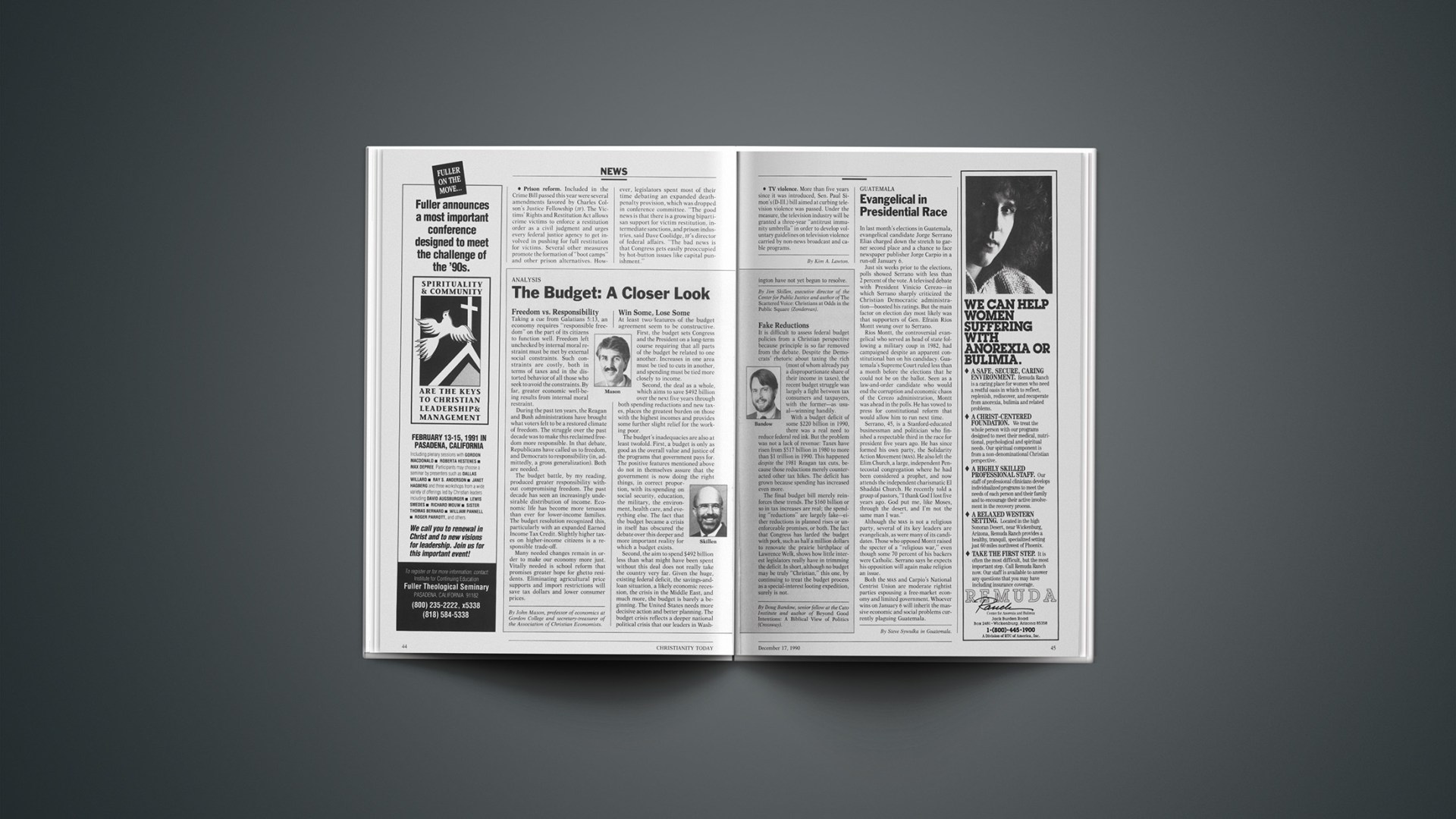In last month’s elections in Guatemala, evangelical candidate Jorge Serrano Elias charged down the stretch to garner second place and a chance to face newspaper publisher Jorge Carpio in a run-off January 6.
Just six weeks prior to the elections, polls showed Serrano with less than 2 percent of the vote. A televised debate with President Vinicio Cerezo—in which Serrano sharply criticized the Christian Democratic administration—boosted his ratings. But the main factor on election day most likely was that supporters of Gen. Efrain Ríos Montt swung over to Serrano.
Ríos Montt, the controversial evangelical who served as head of state following a military coup in 1982, had campaigned despite an apparent constitutional ban on his candidacy. Guatemala’s Supreme Court ruled less than a month before the elections that he could not be on the ballot. Seen as a law-and-order candidate who would end the corruption and economic chaos of the Cerezo administration, Montt was ahead in the polls. He has vowed to press for constitutional reform that would allow him to run next time.
Serrano, 45, is a Stanford-educated businessman and politician who finished a respectable third in the race for president five years ago. He has since formed his own party, the Solidarity Action Movement (MAS). He also left the Elim Church, a large, independent Pentecostal congregation where he had been considered a prophet, and now attends the independent charismatic El Shaddai Church. He recently told a group of pastors, “I thank God I lost five years ago. God put me, like Moses, through the desert, and I’m not the same man I was.”
Although the MAS is not a religious party, several of its key leaders are evangelicals, as were many of its candidates. Those who opposed Montt raised the specter of a “religious war,” even though some 70 percent of his backers were Catholic. Serrano says he expects his opposition will again make religion an issue.
Both the MAS and Carpio’s National Centrist Union are moderate rightist parties espousing a free-market economy and limited government. Whoever wins on January 6 will inherit the massive economic and social problems currently plaguing Guatemala.










